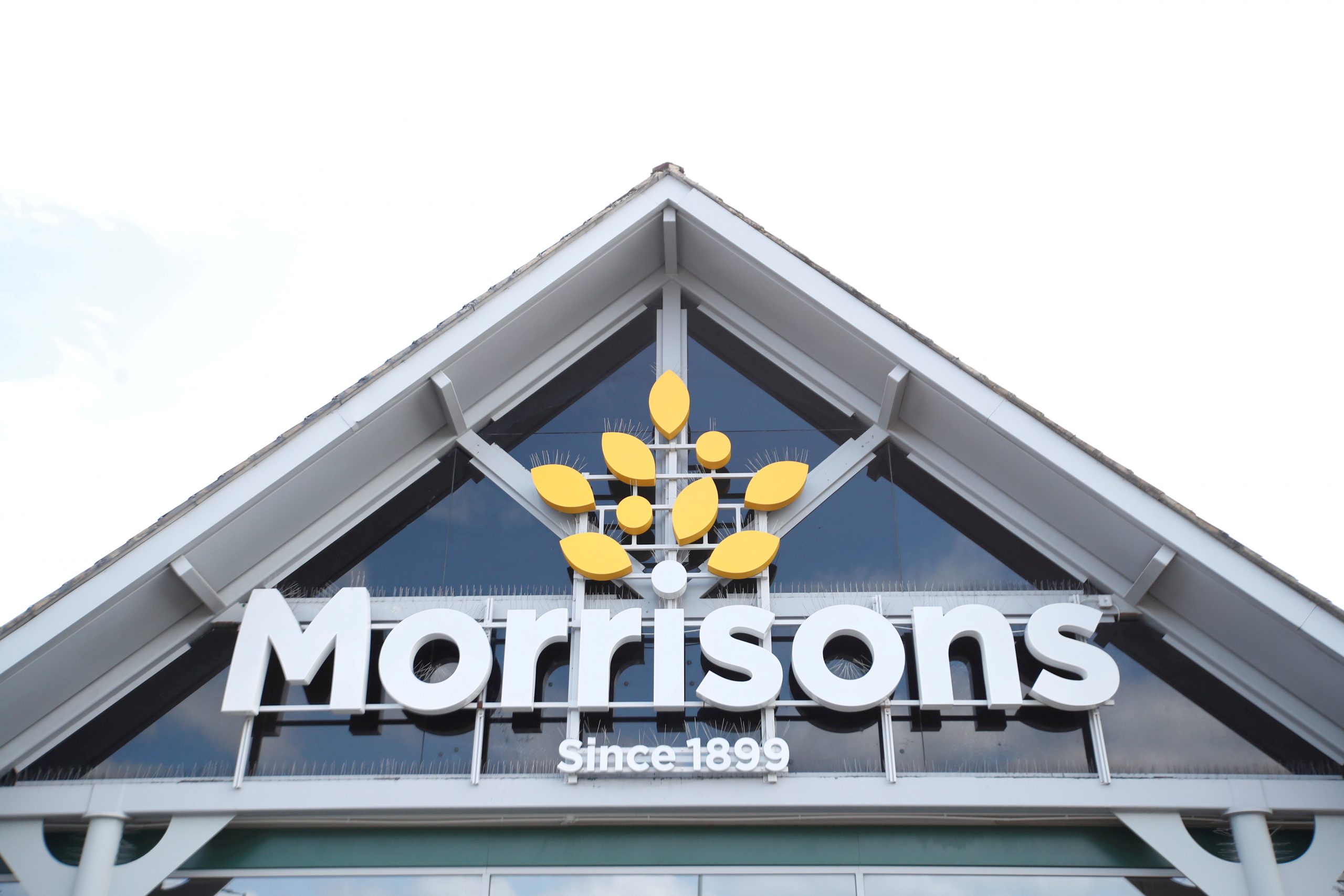The $8.7 billion battle for Britain’s Morrisons intensified on Monday when a third private equity group entered the field sending the supermarket group’s share price racing ahead of the value of an offer it recommended on Saturday.
New York-headquartered Apollo Global Management, which last year missed out on buying Morrisons rival Asda, said it was examining a potential offer but had not approached its board.
Private equity groups have embarked on a spending spree on assets around the world in the last six months, flush with cash after they largely sat out the pandemic. Morrisons, set up 122 years ago as a market stall in Bradford, northern England, is a target.
On Saturday, Morrisons said its board had recommended a takeover led by SoftBank-owned Fortress Investment Group that valued Britain’s fourth-largest supermarket chain at 6.3 billion pounds ($8.7 billion).
The offer from Fortress, along with Canada Pension Plan Investment Board and Koch Real Estate Investments, exceeded a 5.52 billion pound proposal from Clayton, Dubilier & Rice (CD&R), which Morrisons rejected on June 17.
While the Fortress offer was on Monday described as “good value” by abrdn – a number 15 investor in Morrisons according to Refinitiv data – it was less than the 6.5 billion pounds asked for last week by JO Hambro, a top 10 shareholder.
Fortress’ offer gives Morrisons an enterprise value of 9.5 billion pounds when including net debt of 3.2 billion pounds.
Its shares were up 11.4% at 267.1 pence at 1523 GMT – ahead of the 254 pence value of the Fortress deal, indicating investors expect higher offers. Morrisons had no comment on Apollo’s statement.
Analysts have speculated that other private equity groups and Amazon, which has a partnership deal with Morrisons, could also bid. Amazon has declined to comment.
While Britain has always been a key destination in Europe for private equity investments, volumes have peaked this year as Brexit and sterling weakness coupled with the coronavirus crisis hit company valuations.
Like its peers Tesco, Sainsbury’s and Asda, Morrisons enjoyed a surge in sales in the last 18 months, as hospitality was forced to shut, but the cost of ramping up online delivery hit profits.
KINGMAKERS
Ultimately, shareholders will decide Morrisons’ fate.
As things stand there is only one firm bid on the table and investors will vote on the Fortress deal.
Morrisons’ three biggest investors Silchester, Blackrock and Columbia Threadneedle, which Refinitiv data showed having stakes of 15.2%, 9.6% and 9.4% respectively, are effectively the kingmakers. None has commented.
Legal & General Investment Management (LGIM), another top 10 Morrisons shareholder, said investors needed more information about the value of its property so they could make a considered decision.
Under UK takeover rules Fortress’ offer resets the clock for CD&R to clarify its intentions, with a previous deadline of July 17 extended.
Analysts at Barclays said CD&R could pay more than the agreed offer from Fortress, pointing out that CD&R has a bigger UK retail footprint than Fortress as it owns the Motor Fuels Group petrol forecourt chain. Also CD&R might be able to bid more if sale and leasebacks of Morrisons stores form part of its plan.
Fortress has ruled out material store sales and says it likes to empower existing management teams – an approach that could prove popular with the government after the pandemic showed the importance of retaining food production locally.
A spokesman for Prime Minister Boris Johnson said takeover proposals were a commercial matter for the companies involved.
Morrisons owns 85% of its nearly 500 stores and has 19 mostly freehold manufacturing sites. It is unique among British supermarkets in making over half of the fresh food it sells.
British supermarkets are once again attractive because of their cash generation and freehold assets. The funds believe the stock market is not recognising the grocers’ value in the wake of the pandemic.
Last year Apollo lost out on buying Asda to brothers Zuber and Mohsin Issa and TDR Capital. That deal valued Asda at 6.8 billion pounds.
Shares in Tesco and Sainsbury’s were up 3.1% and 2.4% respectively, with speculation swirling that they could also attract approaches. Both companies declined to comment.
($1 = 0.7232 pounds)
(Reporting by James Davey; additional reporting by Carolyn Cohn, Simon Jessop and William James; Editing by Kate Holton, Guy Faulconbridge, Kirsten Donovan and Emelia Sithole-Matarise)
Related

























